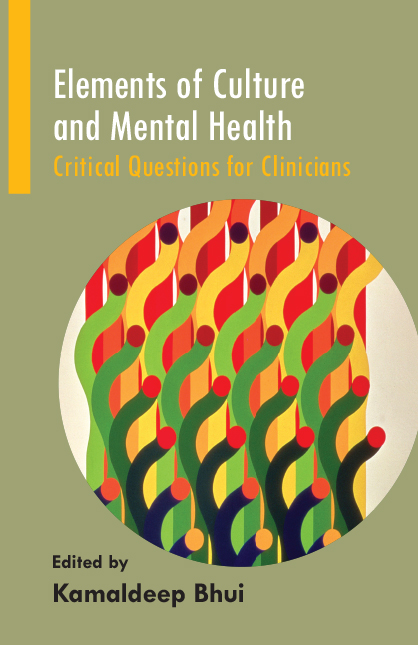Book contents
- Frontmatter
- Contents
- List of contributors
- Foreword: Desire and commitment: essential ingredients in learning about culture and mental illness
- 1 Is trauma-focused therapy helpful for survivors of war and conflict?
- 2 Will ethnopsychopharmacology lead to changes in clinical practice?
- 3 Does cognitive–behavioural therapy work for people with very different cultural orientations and backgrounds?
- 4 Can you do meaningful cognitive–behavioural therapy through an interpreter?
- 5 Are particular psychotherapeutic orientations indicated with specific ethnic minority groups?
- 6 Can psychotherapeutic interventions overcome epistemic difference?
- 7 On the role of culture and difference in evaluation, assessment and diagnosis
- 8 Necessary and sufficient competencies for intercultural work
- 9 On the validity and usefulness of existing Eurocentric diagnostic categories
- 10 Benefits and limitations of the cultural formulation in intercultural work
- 11 Barriers to the intercultural therapeutic relationship and how to overcome them
- 12 How does intercultural interpretation work in the mental health setting?
- 13 Do the power relations inherent in medical systems help or hinder in cross-cultural psychiatry?
- 14 Recovery and well-being: a paradigm for care
- 15 Social perspectives on diagnosis
- 16 Public mental health and inequalities
- 17 Can you do psychotherapy through an interpreter?
- 18 Can race and racism be acknowledged in the transference without it becoming a source of therapeutic impasse?
- 19 Cultural competence: models, measures and movements
- 20 Religion, spirituality and mental health
- Index
7 - On the role of culture and difference in evaluation, assessment and diagnosis
- Frontmatter
- Contents
- List of contributors
- Foreword: Desire and commitment: essential ingredients in learning about culture and mental illness
- 1 Is trauma-focused therapy helpful for survivors of war and conflict?
- 2 Will ethnopsychopharmacology lead to changes in clinical practice?
- 3 Does cognitive–behavioural therapy work for people with very different cultural orientations and backgrounds?
- 4 Can you do meaningful cognitive–behavioural therapy through an interpreter?
- 5 Are particular psychotherapeutic orientations indicated with specific ethnic minority groups?
- 6 Can psychotherapeutic interventions overcome epistemic difference?
- 7 On the role of culture and difference in evaluation, assessment and diagnosis
- 8 Necessary and sufficient competencies for intercultural work
- 9 On the validity and usefulness of existing Eurocentric diagnostic categories
- 10 Benefits and limitations of the cultural formulation in intercultural work
- 11 Barriers to the intercultural therapeutic relationship and how to overcome them
- 12 How does intercultural interpretation work in the mental health setting?
- 13 Do the power relations inherent in medical systems help or hinder in cross-cultural psychiatry?
- 14 Recovery and well-being: a paradigm for care
- 15 Social perspectives on diagnosis
- 16 Public mental health and inequalities
- 17 Can you do psychotherapy through an interpreter?
- 18 Can race and racism be acknowledged in the transference without it becoming a source of therapeutic impasse?
- 19 Cultural competence: models, measures and movements
- 20 Religion, spirituality and mental health
- Index
Summary
Culture and difference are considered to have a potentially enormous impact on diagnosis and assessment of mental health and illness, to the extent that some investigators believe that the elevated rates of psychiatric illness in African–Caribbeans in the UK and Holland may be at least in part a function diagnostic error (Hickling et al, 1999; Mulder et al, 2006; Singh, 2009). Disparities in healthcare can arise from the effect of cultural and racial differences on interactions between patients and mental health services (Smedley et al, 2002; Gregg & Saha, 2006). The former has to do with differences in the explanation and expression of mental distress, and treatment expectations and adherence, whereas the latter has to do with noticing differential treatment of individuals on the basis of an arbitrary demographic characteristic (Qureshi et al, 2008).
Culture
Culture influences psychiatric diagnosis, especially where there are cultural differences. Psychiatric diagnosis as represented in the Diagnostic and Statistical Manual of Mental Disorders (DSM) and International Classification of Diseases (ICD) systems is predicated on a derived etic or universalist perspective. This holds that mental disorders are real disease entities that exist independent of culture and context, although there are cultural variations in both their expression and explanation, as well as in what is deemed normative and functional (American Psychiatric Association, 1994; Bowers, 1998; Mezzich et al, 1999; Kirmayer, 2001). This accommodation of cultural variability, however, is challenging in that the diagnostic systems delimit symptomatology for particular disorders; despite the nod to cultural particularities, in terms of both what constitutes a symptom and how the symptom is related to the disorder, this does not allow for much deviation from Western norms.
The relationship between behaviour, symptom and disorder is complex and rather murky. A particular symptom of a particular disorder in one culture may be normative and functional in another. What is symptomatic of a particular mental disorder according to the DSM system may be symptomatic of a different disorder in another diagnostic system or culture. This is often asserted but rarely supported for culture-bound syndromes. Some symptoms may be indicative of nothing in particular in diagnostic terms. The overall argument is that culture circumscribes, at a very minimum, both expression and explanation of mental distress, and thus the application of standardised diagnostic criteria without taking culture into consideration can result in serious diagnostic error. How can this be?
- Type
- Chapter
- Information
- Elements of Culture and Mental HealthCritical Questions for Clinicians, pp. 31 - 35Publisher: Royal College of PsychiatristsFirst published in: 2017



